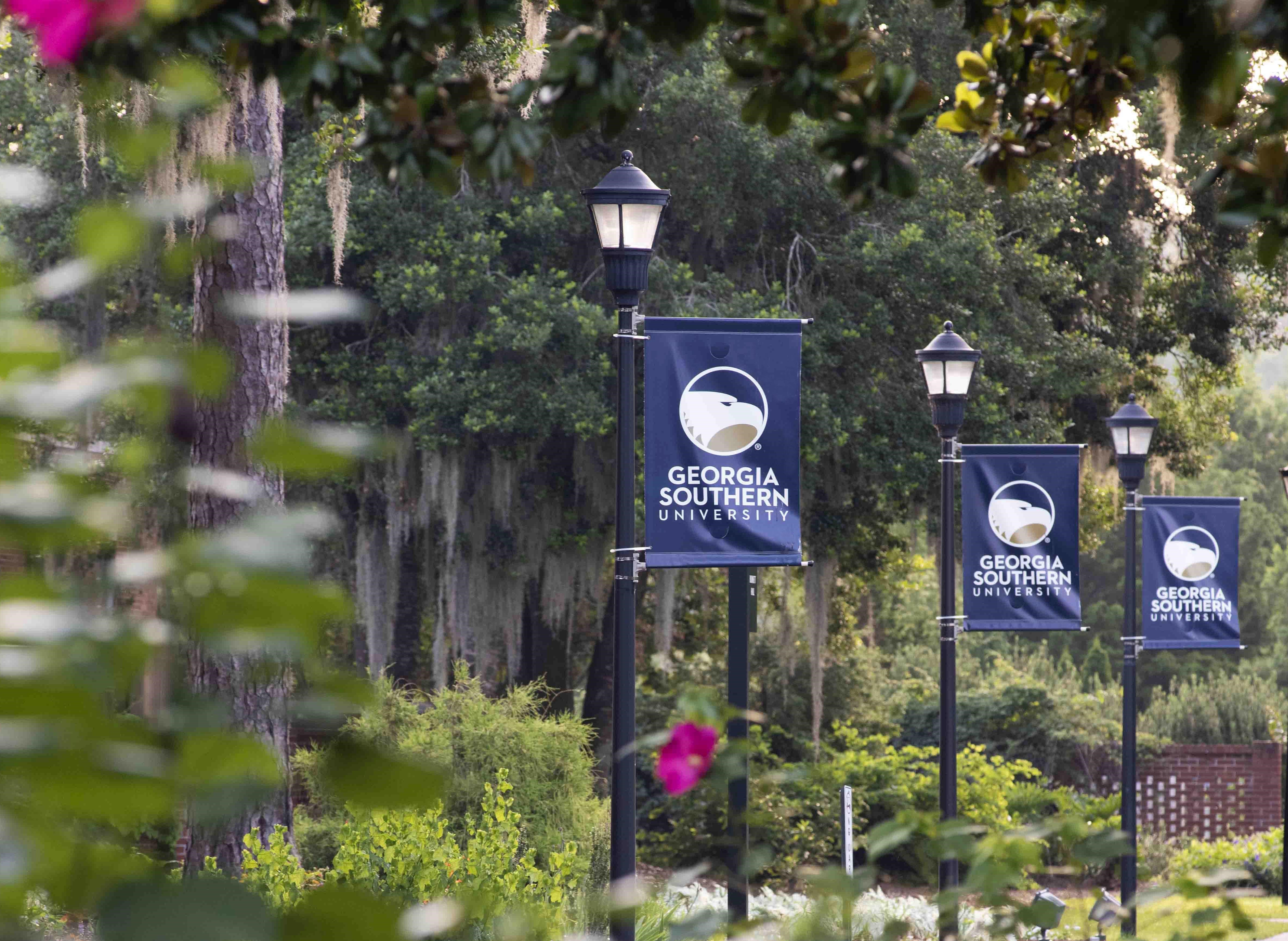2024-2025 Academic Catalog 2024-2025 Academic Catalog |
|
.jpg)
With more than 27,000 students, approximately 140 different degree programs, three campuses and a single vision of growing others, Georgia Southern University is already moving and ready for more. The historic brick streets or moss-dripping oak trees may make our picturesque campuses seem pristine, but there’s a lot of roll-up-your-sleeves work going on here. Research is focused on community impact. Teaching is focused on the students. And the students are focused on their future.
Check out our COVID-19 response page for full information on how the university is adapting to the COVID-19 pandemic.
The foundation for this can-do spirit was born on Dec. 1, 1906, when delegates from Statesboro, Georgia, traveled to the DeSoto Hotel in Savannah and offered the winning bid to create the First District Agricultural School to be located in Statesboro. Just 29 years later and only a few blocks away on Bull Street in Savannah, Armstrong Junior College was established at the historic Armstrong House.*
Both institutions were created to serve their communities, make them more attractive to businesses and offer better career prospects to their residents. Both schools grew because faculty, staff, donors and partners believed there was something special here that should be expanded. Lives and communities were being transformed as educational investments in southeast Georgia created opportunities for our graduates.
Today, as one University, Georgia Southern is the state’s largest and most comprehensive center of higher education south of I-20. With programs at the bachelor’s, master’s and doctoral levels, Georgia Southern is a public Carnegie Doctoral/R2 institution with three vibrant campuses - the Statesboro Campus, the Armstrong Campus in Savannah and the Liberty Campus in Hinesville. Georgia Southern’s nationally accredited academic programs include a heavy dose of real-world work so our graduates are ready from the day they graduate. A unit of the University System of Georgia, the University boasts 300-plus student organizations, outstanding Division I athletics and state-of-the art residence halls and campus facilities.
Since 1906, the University’s hallmark has been a culture of engagement that bridges theory with practice, extends the learning environment beyond the classroom and promotes student growth and life success. Central to the University’s mission is the faculty’s dedication to excellence in teaching and the development of a fertile learning environment exemplified by a free exchange of ideas, high academic expectations and individual responsibility for academic achievement. Faculty, staff, and students embrace core values of collaboration, academic excellence, discovery and innovation, integrity, openness and inclusion, and sustainability.
* Historical notes taken from “The Southern Century: Georgia Southern University, 1906-2006” by Delma Eugene Presley, and “From the Mansion to the University: A History of Armstrong Atlantic State University” by Janet D. Stone.
How to Use This Catalog
The Georgia Southern University General Catalog is an information book and reference guide dealing with different aspects of the University - its policies, facilities, degree programs, course offerings, services, and faculty.
The statements set forth in this Catalog are for information purposes only and should not be construed as the basis of a contract between the students and this institution.
While the provisions of this Catalog will ordinarily be applied as stated, Georgia Southern University reserves the right to change any provision listed herein, including but not limited to academic requirements for graduation, without actual notice to individual students. Every effort will be made to keep students advised of such changes. Information on changes will be available in the Office of the Registrar. Ultimately, each student is responsible for keeping himself or herself apprised of current graduation requirements in their particular degree program. While academic advisors should be consulted regularly, students are responsible for the completion of their chosen degree programs.
If you have suggestions for improving this Catalog, please contact us at ccs@georgiasouthern.edu.
|